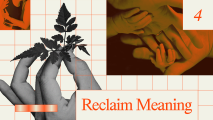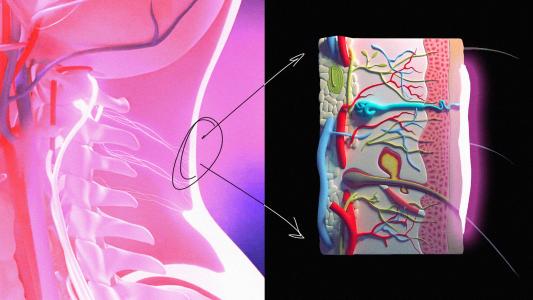Humans may be the only species fully aware of the inevitability of death. William James, considered by many to be the “father of American psychology,” famously called this fateful knowledge the “worm at the core” of human existence. This metaphorical worm today forms the basis of terror management theory, which proposes that awareness of our mortality, coupled with our self-preservation instinct, produces a primal terror that we constantly struggle to manage. To do so, we often form beliefs and take actions that provide meaning and value that we hope persist beyond our own demise, granting us a semblance of immortality. Other times, we simply cope through escapism or denial.
But just as we all deal differently with the omnipresent foreboding of mortality, so too do we fear death in distinct ways. As Cara Santa Maria, a popular science communicator pursuing a PhD in clinical psychology with a focus on end-of-life care, noted on the Skeptics’ Guide to the Universe podcast:
“Some people are afraid of oblivion. Some people are afraid of dying — the pain, the disability. Some people are afraid of leaving people behind. They’re afraid of leaving things unfinished. They’re afraid of not having a legacy. There are so many different ways that we can be afraid of death.”

Surveys suggest that common fears surrounding death are tied to the prospect of leaving loved ones behind and the dying process itself.
However, certain life choices may ameliorate the fear of death. Being married or in a committed relationship is a significant comfort. Being in good physical health helps, too. This may be because it creates more meaning in life and is broadly linked to better mental health or simply that it grants the perception that the Grim Reaper is farther away. Those on opposite ends of the religiosity spectrum also tend to be less afraid of death. Atheists tend to be more relaxed and “in-the-moment,” while strong believers take comfort in knowing there’s an afterlife and that their life has meaning.
Perhaps most comforting, we tend to grow less afraid of death as we get older. As Jade Wu, a clinical health psychologist at Duke University, writes: “This could be because older people have experienced more of life, so they have less fear of missing out. Or it might be because they have more experience with witnessing and handling the death of others.”

For some, however, the fear of death can be hard to handle, developing into what’s termed thanatophobia.
“It is healthy and normal to be afraid of death, but when we venture into these pathological fears where it becomes all-consuming and it starts to interfere with our activities of daily living, there are things that we can do therapeutically,” Santa Maria said.
By far the most effective remedy is cognitive behavioral therapy. A certified therapist will help a death-fearing client to challenge their anxiety-inducing assumptions about dying and then expose the client to death in ways that will alleviate their fears. Such exposure may include watching movies with scenes that depict the end of life, reading hospice materials, or developing a plan for their own passing.
According to clinical therapist Brittney Chesworth, clients “steadily see death as a normal part of life and not the ‘scary monster in the closet.'”
This article was reprinted with permission of Big Think, where it was originally published.






